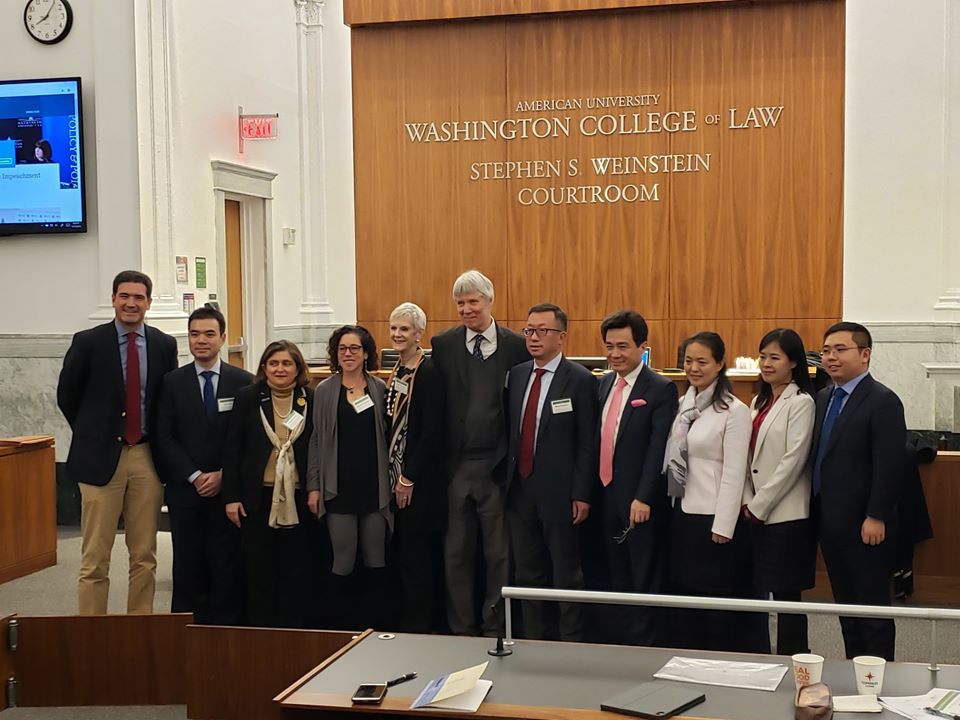Regulatory Aspects of the US-China Trade War

On November 14, AUWCL hosted a panel discussion on the regulatory aspects of the US-China trade war, featuring experts from the U.S. law schools and the Chinese Academy of Social Sciences (CASS). The panel discussed issues that have confronted the US- China relations, including trade negotiations, foreign investments, market access, the national security exception, and the competition of technology.
AUWCL Professor Jennifer Daskal recognized the value of having US tech companies in China, as well as the concern that US actions alone will not be able to counter the incredibly powerful Chinese tech market. Daskal emphasized that the US should work with companies to ensure that they adopt appropriate data protection and data privacy mechanisms to address the Chinese government’s surveillance.
Regarding the national security exception, Professor Zhou, Deputy Director of the Institute of Law, Chinese Academy of Social Sciences, stated that the Chinese government has a broadly defined passive legal obligation to respond to threats to national security, according to the Chinese Constitution. He argued that when the country is under the threat, every individual and organization has a legal obligation to defend the country.
Liao Fan from the Chinese Academy of Social Sciences identified major issues in the relationship between the US and China, for example, the status of China as a developing country, and subsidies for state-owned enterprises. In that context, Liao stressed that the Chinese Constitution clearly provides that public ownership, including state and collective ownership, shall be the dominant force of the national economy.
Neysun Mahboubi, from University of Pennsylvania Center for the Study of Contemporary China, forecast that the US and China are close to sign a “phase-one deal” that focuses on US’s and China’s agricultural purchases, and the US rolling back some of its tariffs on China. However, this deal, in his opinion, will not cover some of the structural issues that underlie the trade war, such as subsidies versus state-owned enterprises in China, or foreign access to the Chinese market and technology transfer.
The panel concluded with the discussion of Jamie Horsley from Yale Law School’s Paul Tsai China Center. Horsley examined the role of the Chinese regulatory process and the Chinese Communist Party in the US-China trade relation.